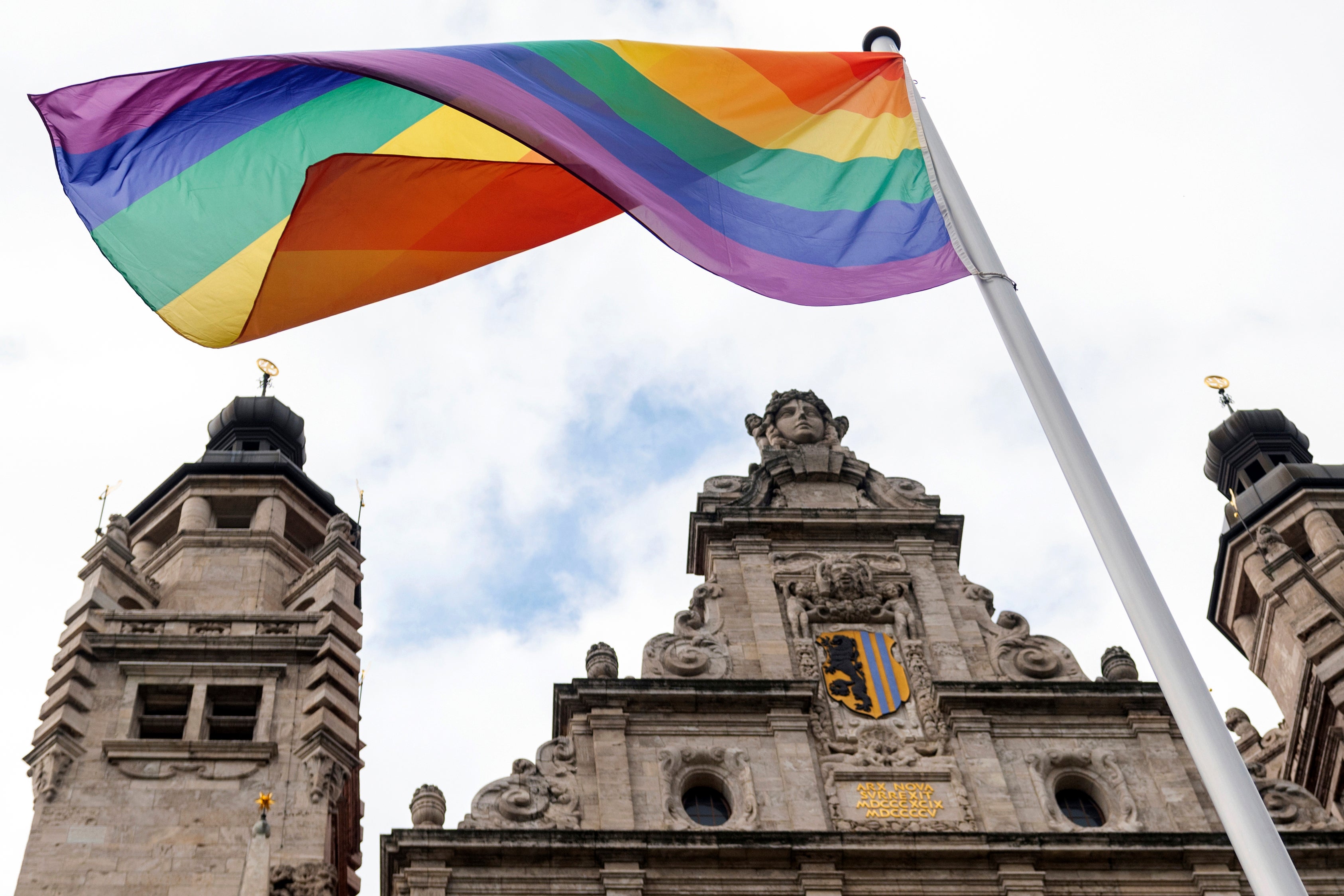Germany OKs raising rainbow flag at government buildings
Germany’s Interior Ministry says it has authorized raising the rainbow flag at federal government buildings on some occasions, a move meant to end discussions about unclear rules and signal acceptance of diversity

Your support helps us to tell the story
From reproductive rights to climate change to Big Tech, The Independent is on the ground when the story is developing. Whether it's investigating the financials of Elon Musk's pro-Trump PAC or producing our latest documentary, 'The A Word', which shines a light on the American women fighting for reproductive rights, we know how important it is to parse out the facts from the messaging.
At such a critical moment in US history, we need reporters on the ground. Your donation allows us to keep sending journalists to speak to both sides of the story.
The Independent is trusted by Americans across the entire political spectrum. And unlike many other quality news outlets, we choose not to lock Americans out of our reporting and analysis with paywalls. We believe quality journalism should be available to everyone, paid for by those who can afford it.
Your support makes all the difference.Germany's Interior Ministry said Wednesday it has authorized raising the rainbow flag at federal government buildings on some occasions, a move meant to end discussions about unclear rules and signal acceptance of diversity.
The ministry said that flying the rainbow flag “must be related to a concrete date,” such as Pride marches or the June 28 anniversary of the 1969 Stonewall uprisings in New York that helped propel a global LGBTQ movement. There are some national holidays and other days when it won't be allowed.
The ministry said that, until now, there had been no rule formally allowing the flag, “which in the past has frequently led to discussions.”
“We are a modern and diverse country,” Interior Minister Nancy Faeser said in a statement. “It is high time that we as state institutions also show that more clearly.”
“We want discrimination against people because of their sexual identity to end in all areas of society,” she added. “We want to show solidarity with all those who still experience exclusion.”
Faeser's decision comes as Chancellor Olaf Scholz's coalition of three socially liberal parties, which took office in December, pursues an agenda of social reforms.
The government has launched a drive to remove from the country’s criminal code a ban on doctors “advertising” abortion services. Among other things, it also wants to legalize the sale of cannabis for recreational purposes, ease the path to German citizenship and lift restrictions on dual citizenship.
The government also wants to scrap 40-year-old legislation that requires transsexual people to get a psychological assessment and a court decision before officially changing gender, a process that often involves intimate questions. It is to be replaced with a new “self-determination law.”
Subscribe to Independent Premium to bookmark this article
Want to bookmark your favourite articles and stories to read or reference later? Start your Independent Premium subscription today.